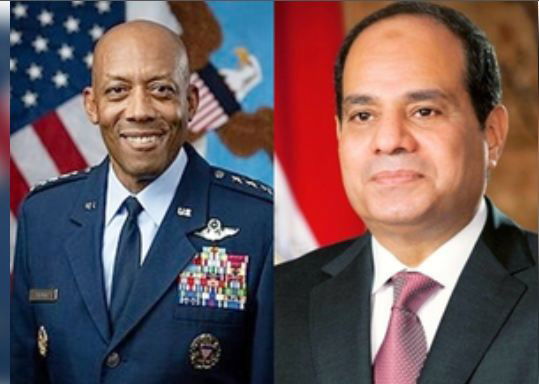America
Egyptian President, top US general discuss situation in Middle East

Cairo, Aug 26
Egyptian President Abdel-Fattah al-Sisi and visiting Chairman of the US Joint Chiefs of Staff Charles Brown discussed the ongoing developments in the Middle East amid escalation along Israel-Lebanon borders.
During the meeting, Sisi emphasised that the current regional situation demands decisive action from the international community and all relevant parties to exert every effort and intensify pressure to defuse tensions, the Egyptian Presidency said in a statement.
He said that efforts also need to be made to halt the escalation threatening the security and stability of the entire region, warning of the dangers of opening a new front in Lebanon, Xinhua news agency reported.
Sisi underscored the importance of responding to the joint Egyptian-US-Qatari efforts aimed at achieving an immediate ceasefire in the Gaza Strip and facilitating the exchange of prisoners and detainees, which would help to advance the path toward de-escalation and stability in the region.
The Egyptian President also highlighted the dire humanitarian conditions endured by the Palestinian people in Gaza, which necessitated an immediate halt to the conflict to deliver the massive amounts of relief and medical aid required.
Sisi reaffirmed the need for international efforts to launch a comprehensive political process leading to the establishment of an independent Palestinian state within the framework of a two-state solution, as the basis for sustainable regional stability.
For his part, the US General expressed his country's appreciation for Egypt's role in supporting stability, security, and peace, according to the statement.
He looked forward to promoting joint military cooperation to broader prospects, thereby serving the two countries' mutual interests and reinforcing stability and peace in the Middle East, the statement added.
Israeli and Hezbollah forces engaged in extensive exchanges of fire early Sunday morning along the Israel-Lebanon border, marking a significant escalation in their longstanding conflict.
Hezbollah announced it had launched hundreds of missiles into Israel in retaliation for the killing of its commander, Fouad Shokor, in an Israeli airstrike on Beirut last month. In response, Israel reported conducting numerous preemptive airstrikes targeting Hezbollah's rocket launchers in southern Lebanon.



































